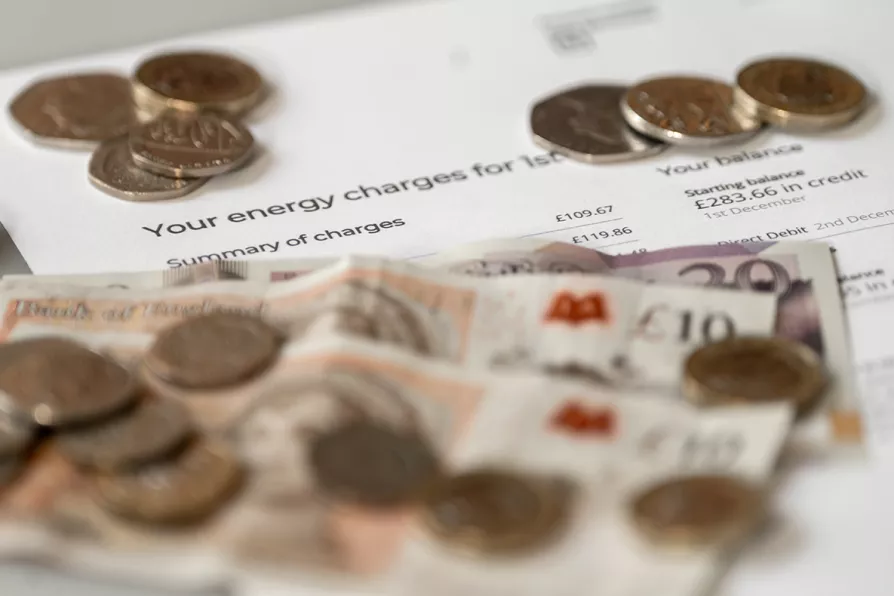
 Money stacked on top of an energy bill,
Money stacked on top of an energy bill,
THIS island is stuck in the north Atlantic in a temperate weather system that delivers warm, wet windy conditions. The popular expression has that if you don’t like the weather, don’t worry because something different will arrive shortly. These conditions gave us the green landscapes of Gainsborough and the ever-changing vistas of Turner.
There is a reason why the country is a cacophony of verdant colours. It is drier in the east and wetter in the west, colder in the north and warmer in the south and everywhere the price of energy is a scandal.
It is also an abuse of monopoly power, a symptom of the degeneracy of the political class and its corrupt submission to the dictates of capital and a burden on working people that has the capacity, if mobilised and directed, to raise the political temperature high enough to boil our bourgeoisie into surrender to the popular will.
Why is our energy so expensive? The conventional answer — articulated with varying degrees of emphasis by the competing sections of our ruling class — centres on the market consequences of increased demand, supply difficulties arising from the Ukraine war and the high expenditures occasioned by the transition to renewables.
Labour promised to cut energy bills by £300 a year by 2030 and that Britain would become a clean energy superpower.
There has been real progress in shifting to renewables and if this is relatively expensive it is both a money-saver and a life-saver if it makes a real dent in the climate crisis.
Over half of our energy needs were met by renewables in the past year and as this investment continues we can expect that — unlike fossil fuels extracted from land and under the sea — this is an inexhaustible supply system.
Britain’s reliance on imported gas to meet the constant variables of energy supply is the cause of some of our energy price hikes because, the Establishment account has it, the Russians invaded Ukraine.
It is worth deconstructing this account because, irrespective of our individual views on the the Russian invasion of the territory of the former Soviet republic, the proximate cause of the gas price hike is actually the sanctions imposed on Russia by the European Union and Nato, with which it is now shackled in an unholy alliance of monopoly power and military spending.
When a US-sponsored Ukrainian sabotage team blew up the pipeline bringing energy from Russia to western Europe, and particularly to the industrial hub of which Germany is key, it disadvantaged the European economies and enabled US energy corporations to make a killing, in line with Trump’s grand plan.
Reordering the global energy market to implement the strategic plans of privately owned monopoly corporations is what lies behind the shift in the European theatre to a war footing, confronting Russia in a bid to weaken this economic entity, undoubtedly capitalist in character but nevertheless an obstruction to full spectrum Western dominance.
An element in the thinking of some in US ruling circles sees a division of responsibility, with the US free to confront China in its sphere of influence.
In a perverse inversion of the illusory capitalist rationale for markets — that competition necessarily drives down prices — the domestic energy market in Britain sets prices according to the most costly source of energy used by gas-fired power plants.
This exercise of monopoly power in collusion with the political Establishment means the market price of British electricity is set by the price of gas at a rate higher than anywhere, including the troubled economy of Germany.
There has never been a clearer case for public ownership and state control of prices.









